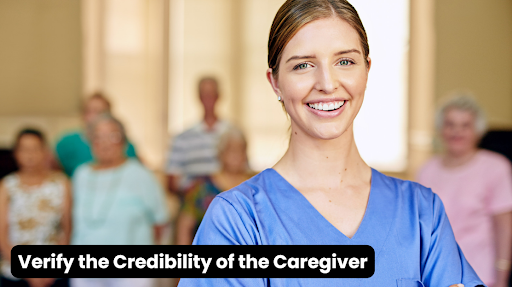Concerned about finding the best possible care for your aging loved one? Choosing private home care can feel overwhelming, and for good reason. After all, choosing the right program is essential.
Your senior loved one will feel cared for in capable and compassionate hands, receiving the attention they need while preserving their dignity and comfort.
With so many factors to weigh, how can you make the right choice? Here are key considerations to guide you in making an informed decision that meets your loved one’s unique needs.
Assess the Level of Care Needed
Generally, the starting point of deciding to select private home care involves determining exactly what type of care your loved one requires.The care needs of seniors vary significantly depending on their health, mobility, and cognitive abilities.
Consider your loved one’s needs before selection. Does he require non-medical assistance, medical care, or a combination of both? For seniors who have chronic conditions or just had surgery, a licensed healthcare professional like a registered nurse or licensed practical nurse is mandatory.
Verify the Credibility of the Caregiver

Qualifications and experience play a crucial role in ensuring quality care. Consequently, consider ensuring that the private home care for seniors you hire has a care provider with adequate training, licenses, and certifications relevant to the required level of care. This ensures that your loved one receives appropriate support.
For example, if your loved one needs specialized care, such as medication management or mobility assistance, ensure the caregiver is properly trained and qualified.
Check the Flexibility of Services
Seniors’ needs can change rapidly, sometimes requiring different services overnight, so it’s very important to choose a care home that is flexible in its services. Whether your loved one needs short-term care while recovering from an illness or long-term support due to a chronic condition, the level of care must be appropriate.
Ensure that caregivers offer flexibility to modify care plans as your loved one’s needs evolve. Sometimes, this might be adjusting the hours of care, adding physical therapy or memory services, or one of the many other tailored options that fit your loved one’s needs.
Consider the Cost of Care
Private home care can vary greatly in cost. This will depend on the type of care, location, and required hours. In other words, you want to understand how much you can allocate or are willing to pay for your home care services.
Make sure to ask for a detailed breakdown of costs and if there are additional service fees for specific services. Some agencies may provide discounted bundle deals, while others charge by the hour.
Ensure Compatibility with Your Loved One’s Personality
The relationship between the caregiver and your loved one will truly make or break their comfort and well-being. The caregiver should not only be able to provide the needed care but also be someone with whom your loved one feels comfortable and can trust.
Compatibility in personality, communication style, and cultural or language preferences can significantly impact your loved one’s home care experience.
You should instead ask how they choose caregivers and what process they use to match clients. Some agencies allow interviews or trial periods to ensure compatibility, reducing the risk of mismatched expectations.
Look for a Provider with Strong Communication and Support Systems
Knowing that good communication between your home care provider, caregiver, family, and the senior can make or break the quality of care, you’d like a provider who keeps you informed about your loved one’s progress, continually addresses your concerns, and attends to emergencies as soon as possible.
Some agencies allow interviews or trial periods to ensure compatibility, reducing the risk of mismatched expectations. This ensures everyone stays informed, and concerns are addressed promptly.
Check the Provider’s Reputation and Reviews
You may know much regarding the reputation of a home care provider by researching it. Check out the reviews or testimonials from other families who may have used their services. Positive reviews can guarantee reassurance, and some not-so-nice reviews may come in handy to alert you of potential issues.
Ask for referrals from the agency. Talking to other families who may have worked with the same agency could better give you an idea of what to expect from them, ranging from their professionalism and reliability to their experience in working with that particular provider.
Consider Specialized Care Needs
If a client has some ailment, such as dementia or Alzheimer’s disease, or is physically disabled, then that person would be best served by a professional who specializes in offering specialized care. Find out what experience and type of training the caregivers of your provider have received.
Specialized care can also be made using assistive technologies or home modifications that make their surroundings safe and supportive. Providers knowledgeable in their areas can give more personalized care to meet your loved ones’ needs.
Ensure Availability of 24/7 Care, if Needed
Some elders need full-time care, considering the severity of the medical conditions, such as that which may necessitate night care. If your elder requires care through the day and night, make sure to verify that the caregiver can provide care through the 24-hour day and has sufficient personnel to care at all hours.
It will also be advisable to ask how caregiver shifts are managed to ensure that continuity of care is met; too many different caregivers can be confusing or downright unsettling for some seniors, after all. Having the constant face of someone who has learned about your loved one makes all the difference in the world for his comfort and emotional well-being.
Understand Legal and Contractual Obligations
| Aspect | Details | Importance |
| Legal and Contractual Terms | Ensure you understand the scope of services provided, payment terms, cancellation terms, and how changes to the care plan will be managed. | Clarity helps avoid misunderstandings regarding legal obligations and expectations. |
| Insurance and Liability | Check the provider’s insurance coverage and liability protection for caregivers. | Ensures both your loved one and the caregiver are covered in case of accidents or injuries during care. |
| Commitment | Before committing to a home care service provider, review all contractual obligations carefully. | Protects you from potential disputes and ensures informed decision-making. |
Conclusion
Choosing suitable private home care for an elderly family member is a huge decision and should be dealt with with the utmost deliberation and research. This would enable you to make an informed decision for your loved one by taking into account considerations such as the level of care, caregiver qualification, flexibility, cost, and compatibility.
The goal is to find a solution that addresses physical needs while also supporting emotional well-being to maintain your loved one’s quality of life.
FAQs
- What type of care does my loved one need?
Assess whether they need non-medical assistance, medical care, or a combination of both.
- How do I verify a caregiver’s qualifications?
Ensure they have relevant certifications, proper training, and have passed background checks.
- Can care plans be adjusted over time?
Yes, many providers offer flexible plans that can adapt as your loved one’s needs evolve.












